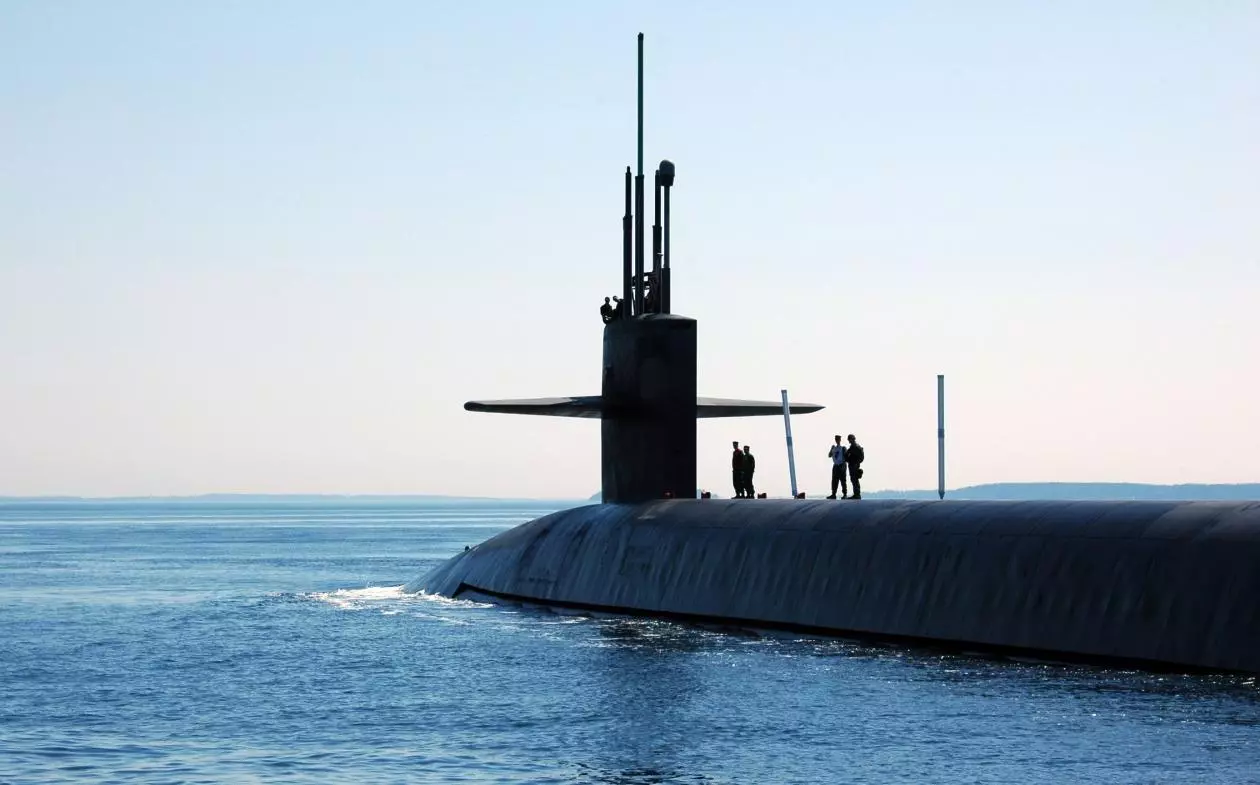The United States will deploy a nuclear-armed submarine to South Korea for the first time in decades to defend South Korea against increasing nuclear threats from North Korea, U.S. officials said.
The plan to dock the ballistic missile submarines in South Korea, which hasn’t happened since the 1980s, headlines an effort to make U.S. deterrence against Kim Jong Un’s regime “more visible,” according to senior administration officials. It will also see the U.S. vow to give its ally a greater role in any response to a potential nuclear attack.
President Joe Biden and his counterpart, South Korean President Yoon Suk Yeol, will unveil the new agreement in Washington on Wednesday, the officials said.
The Washington Declaration, as it’s known, won’t involve the U.S. deploying nuclear weapons to the South, as it did during the Cold War, the officials said. Instead, the U.S. will increase the number of military assets it sends to the country temporarily, such as nuclear-armed submarines and bombers.
Polling shows more and more South Koreans want their government to develop nuclear weapons of their own, driven by questions over whether a Washington distracted by the growing clash with China would protect them in a conflict with the nuclear-armed North.
The U.S. would oppose this development, also barred by international treaty.
The new steps are designed to be “seen by the Korean public,” and the agreement also sets out a new framework through which the government in Seoul can have more of a voice in any response in a crisis, an official said.
In return, an official added, South Korea would reaffirm its commitment to the Nuclear Nonproliferation Treaty, known as the NPT, which bars countries from seeking nuclear weapons.
The officials briefed reporters on the condition of anonymity ahead of the official announcement.
By contrast, North Korea is not a signatory to the treaty, and in recent years under leader Kim, it has made strides to develop its suspected arsenal of around 20 nuclear weapons.
Earlier this month, North Korea launched its first solid-fuel intercontinental ballistic missile, in what analysts say is a meaningful advance in the country’s efforts to build a nuclear arsenal that is harder to detect and capable of threatening anywhere in the continental U.S.
U.S. and South Korean officials also say North Korea is preparing for its seventh nuclear test, which would be its first since 2017.
Yoon, a former prosecutor who was elected last year, arrived in Washington on Monday for a six-day state visit as the U.S. and South Korea mark the 70th anniversary of their alliance, which dates to the end of the Korean War. He and Biden will hold a summit Wednesday, and Yoon will address a joint meeting of Congress on Thursday.
It is the first U.S. state visit by a South Korean leader in 12 years and the first by an Indo-Pacific leader during the Biden administration, which is focusing more intensely on the strategically important region as it tries to counter growing Chinese influence.
Yoon’s visit follows the largest U.S.-South Korea joint military exercises in years, aimed largely at countering the North Korean nuclear threat.
The two countries are also stepping up their security coordination with Japan, holding trilateral defense talks in Washington this month. Biden is also expected to encourage Yoon to continue improving ties with Tokyo, with which Seoul has long had a fraught relationship.




